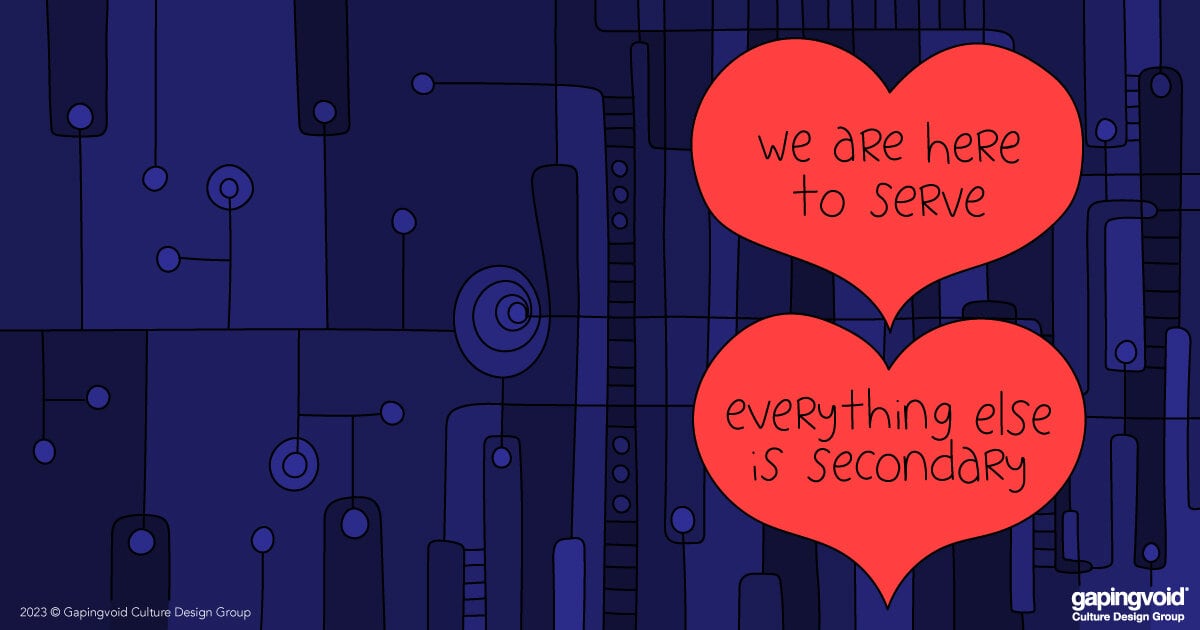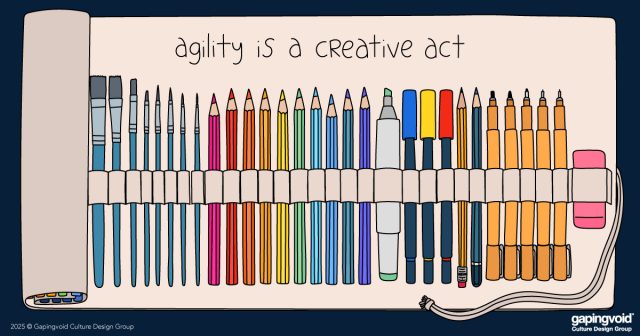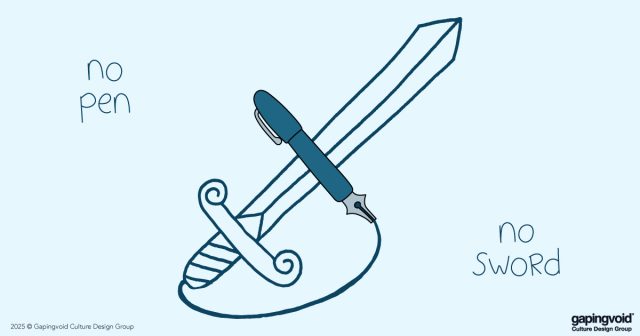
Akira Kurosawa’s Seven Samurai is known as one of the greatest movies of all time. It’s usually found in most serious film critics’ top-ten lists. Three hours of pure poetry. (They made a remake in 1960 with “The Magnificent Seven,” but it didn’t have nearly the same level of nuance, poignancy, or dazzling cinematography.)
And yet for all that artistic mastery, the great message of the movie is not revealed until the final minute of the final scene: Which is, that the real victor of a battle is not the heroes who fight it, but the people they serve. The three surviving samurai walk away with nothing, with four of the seven comrades dead, meanwhile the villagers they saved from the bandits are alive and well, singing with joy from the victory.
In the final line of the film, the samurai leader says to his two remaining comrades: “In the end, we lost this battle too. The victory belongs to the peasants, not to us.”
And then we see a final shot of their four dead comrades’ graves (the latter who you can’t help but get emotionally attached to in the last few hours), and we roll credits.
It’s heartbreaking, yet so utterly poignant.
Why? Because anyone who has ever done anything worth a damn, knows that they probably weren’t the main beneficiaries of their efforts. Our work may have lit up the world, but we still remain down in the mud, somehow.
In other words, doing something meaningful – in business, in art, in war, in life – will probably pay off in the end, it just might not pay off for you.
In his new book, “Boom! Leadership that Breaks Barriers, Challenges Convention, and Ignites Innovation,” Gapingvoid friend and advisor, Brig Gen E. John “Dragon” Teichert, USAF (ret) refers to this mindset as “Servant Leadership,” plain and simple. The idea being – to quote Colonel B.P. McCoy. That “without genuine concern, this is all worthless.”
In Dragon’s words – this isn’t about “being soft and friendly or passive and undisciplined. It is also not about forsaking high standards and allowing anything and everything. It’s actually quite the opposite! Servant leadership is about embodying and expecting the highest of standards because you genuinely care. It is the right thing to do and the most effective way to lead the members of your team to becoming the best possible version of themselves.”
“Because you genuinely care” being the key phrase here. This is what service is all about. Yes, Veteran’s Day is about honoring those who served but it’s also an opportunity to ask ourselves what service ACTUALLY means.
So to all the Vets – “Dragon” Teichert included – thank you for serving, but also, thank you for teaching us how to serve. We owe you all so very much.



